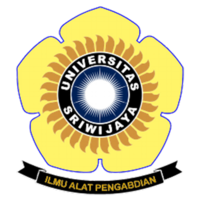UTILIZING WHATSAPP APPLICATION FOR TEACHING ENGLISH LANGUAGE: WHY AND HOW?
Abstract
WhatsApp is one of the most popular messaging applications nowadays and it can be accessed by using smart phone, personal computer, and tablet. Most people prefer to use this application for communicating with other. This application also has invaded all aspects of life, especially in education field. However, this application has not been utilized optimally by English teachers in teaching English language, whereas WhatsApp is a potential media to help English teachers in teaching English language. WhatsApp allows users to utilize its features to text, to call, and to send video, audio, links, location, document, pictures. In this article, the writer will explain about why WhatsApp is a potential media tool for teaching English language and how to use WhatsApp in teaching English language. In brief, the writer expects that utilizing WhatsApp can help English teachers and students in teaching and learning English language and can improve students' English ability.
Key words: WhatsApp, English language teaching, mobile phone technology
Full Text:
151-157References
Aamri, A & Suleiman, K. (2011). The use of Mobile Phones in learning English language by Sultan Qaboos University Students: Practices, Attitudes, and challenges. Canadian Journal on Scientific & Industrial Research, 2, (3), 143-152.
Ahor, T. & Zarei, M. (2016). The effect of task-based extensive reading on Iranian EFL Learners’ writing accuracy. The Journal of Teaching English For Specific and Academic Purposes, 4, (3), 573-580.
Alharahsheh, O., K., A. (2015). The Effect of Using CALLA Instruction Strategies on 9th Grade Students' Writing Achievement and Satisfaction. Journal of Literature, Languages and Linguistics, 15, 32-43.
Alshammari, R., Parkes, M., & Adlington, R. (2017). Using WhatsApp in EFL Instruction with Saudi Arabian University Students. Arab World English Journal, 8(4), 68-64. https://dx.doi.org/10.24093/awej/vol8no4.5.
Bensalem, E. (2018). The Impact of WhatsApp on EFL students’ vocabulary learning. Arab World English Journal, 9(1), 23-28. https://dx.doi.org/10.24093/awej/vol9no1.2.
Fattah, S. F. E. S. A. (2015). The Effectiveness of Using WhatsApp Messenger as One of Mobile Learning Techniques to Develop Students' Writing Skills. Journal of Education and Practice, 6, (32), 116-127.
Gon, S. & Rawekar, A. (2017). Effectivity of E-learning through WhatsApp as a teaching tool. MVP Journal of Medical Sciences, 4(1), 19-25. DOI: 10.18311/mvpjms/2017/v4i1/8454.
Hamad, M. M. (2017). Using WhatsApp to enhance students’ learning of English language “Experience to Share”. Higher Education Studies, 7 (4), 74-87. http://doi.org/10.5539/hes.v7n4p74.
Jafari, S. & Chalak, A. (2016). The role of WhatsApp in teaching vocabulary to Iranian EFL learners at Junior High School. English Language Teaching, 9(8), 85-95. http://dx.doi.org/10.5539/elt.v9n8p85.
Justina, Maria. (2016). Use of WhatsApp to Enhance reading and writing skills at undergraduate college level. Journal of Lnguage in India, 16, 47-60.
Kheryadi. (2017). The implementation WhatsApp as a media of English language teaching. LOQUEN, 10(2), 1-14.
Lailiyah, M. & Cahyono, B. Y. (2016). Indonesian EFL teachers’ Self-Efficacy towards technology Integration (SETI) and their use of technology in EFL. Studies in English Language Teaching, 5(2), 345-357. http://dx.doi.org/10.22158/selt.v5n2p344.
Lindaman, D & Nolan, D. (2015). Mobile-assisted language learning: application development projects within reach for language teachers. International Association for Language Learning Technology, 45(1), 1-22.
Nalliveettil, G. M & Alenazi, T, H, K. (2016). The Impact of Mobile Phones on English Language Learning: Perceptions of EFL Undergraduates. Journal of Language Teaching and Research, (7), 2, 264-272.
Pim, C. (2013). Emerging technology, emerging minds: digital innovations within the primary sector. In Gart Motteam (ed), Innovations in learning technologies for English language teaching. London: British Council.
Rakhmakrisnan. (2017). Use of WhatsApp for English language proficiency among B.Ed trainess. International Journal of Research – Granthaalayah, 5(9), 1-6. https://doi.org/10.5281/zenodo.1004446.
Sayan, H. (2016). Affecting higher students learning activities by using WhatsApp. European Journal of Research and Reflection in Educational Sciences, 4,(3), 88-93.
Susanti, A & Tarmuji, A. (2016). Techniques of Optimizing Whatsapp as an Instructional Tool for Teaching EFL Writing in Indonesian Senior High Schools. International Journal on Studies in English Language and Literature, 4,(10), 26-31. http://dx.doi.org/10.20431/2347-3134.0410005.
Speroff, Yulia. (2016). Using Whatsapp for Speaking and Listening Practice (paper presented on TESOL Greece 37th Annual Convention 2016 in Athens, Greece). Retrieved on 27 December2017 from https://yuliyasperoffblog.wordpress.com/2016/09/11/using-whatsapp-for-speaking-and-listening-practice/.
Ta’amneh, M. A. A. (2017). The effect of using WhatsApp Messenger in learning English language among university students. International Research in Education, 5 (1), 143-151. http://dx.doi.org/10.5296/ire.v5i1.10801.
Taj, I. H., Sultan, N. B., Sipra, M. A., & Ahmad, W. (2016). Impact of Mobile Assisted Language Learning (MALL) on EFL: Meta-analysis. Advances in Language and Literacy Studies, 7(2), 76-83. http://dx.doi.org/10.7575/aiac.alls.v.7n.2p.76.
Article Metrics
Abstract view : 2793 times151-157 - 4509 times
Refbacks
- There are currently no refbacks.
